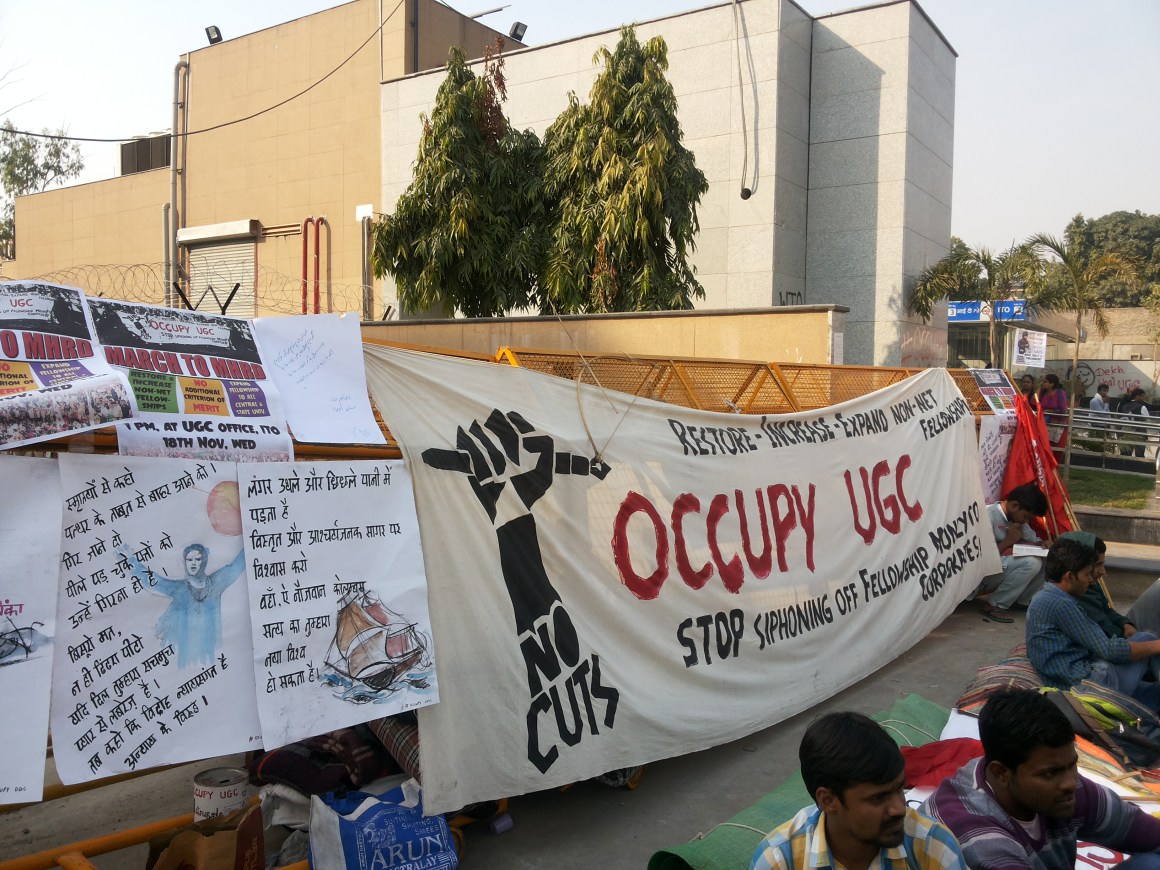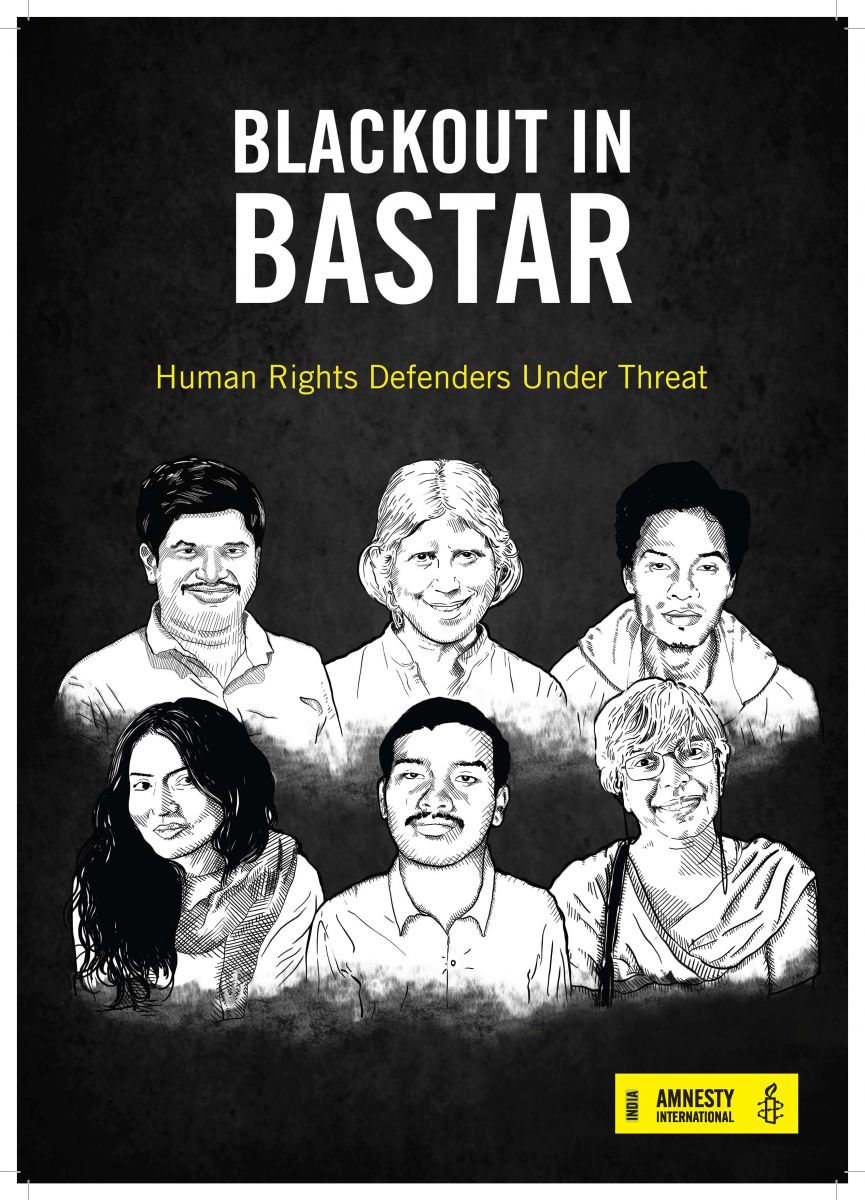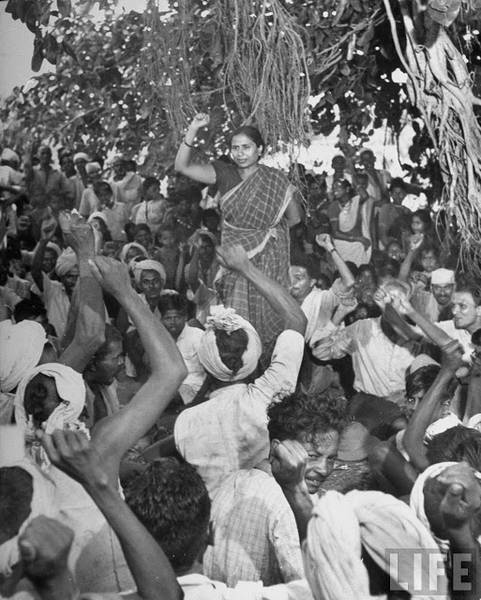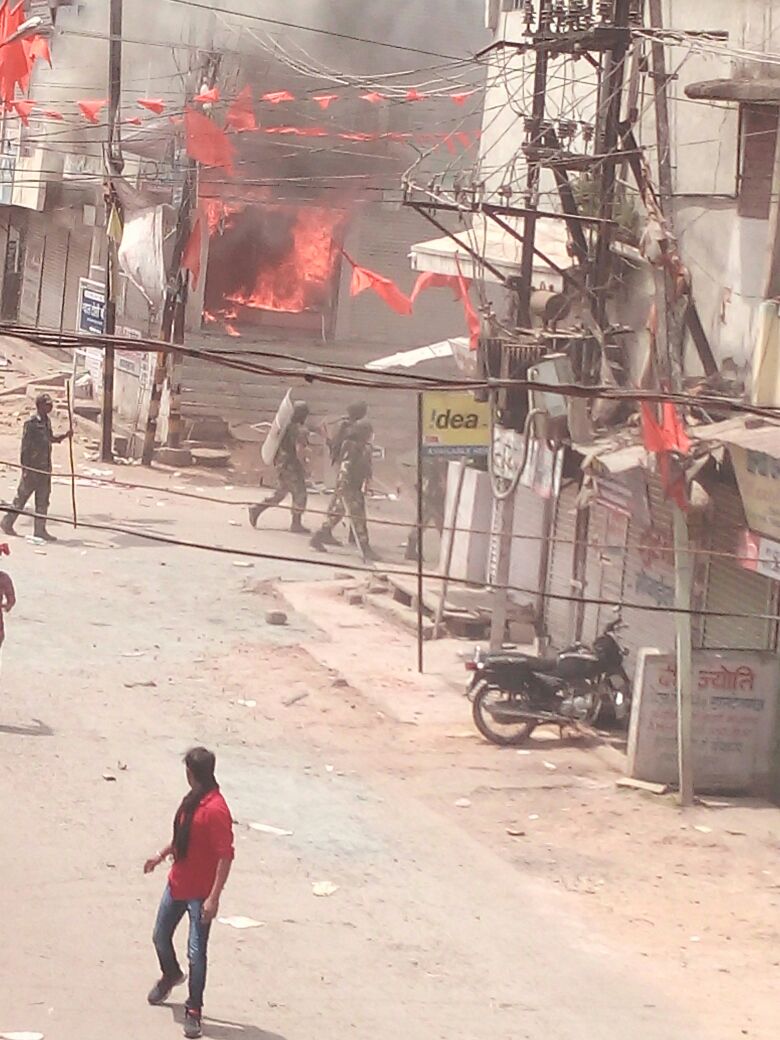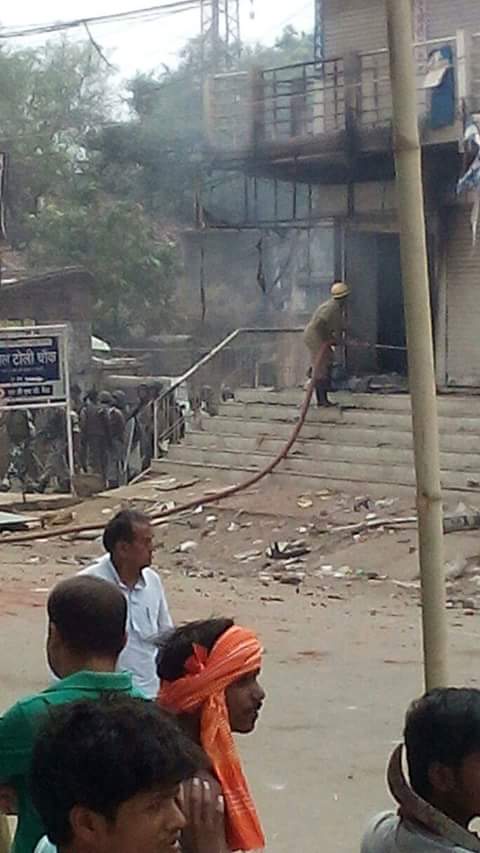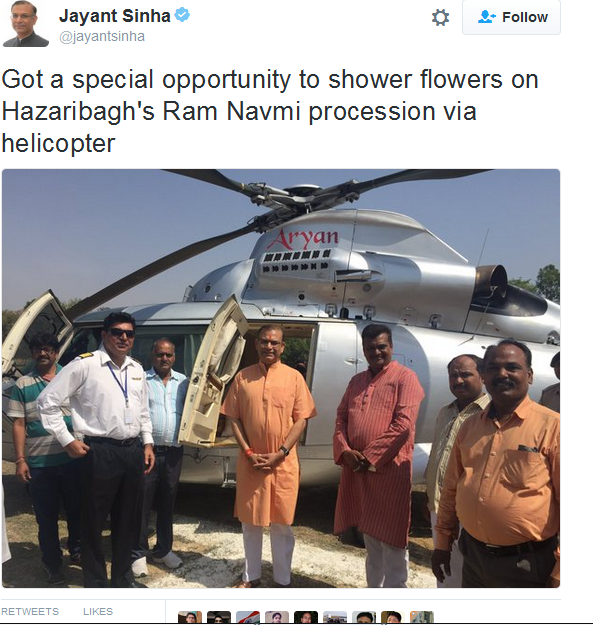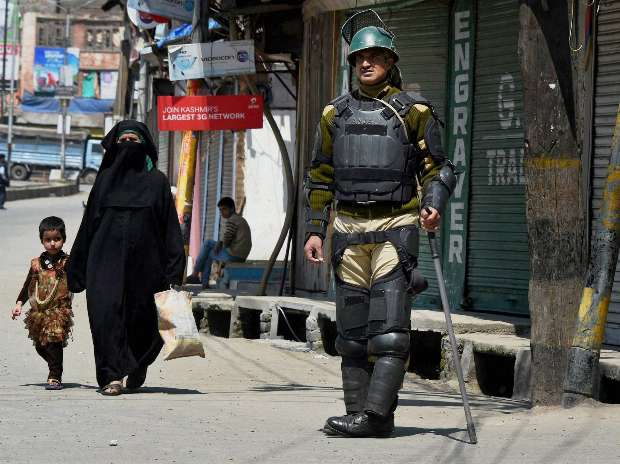Does the Modi Government Want Mass Suicides of Students in Campuses Across the Country, angrily demand Research Scholars?
The Modi Government is squeezing fellowship amounts promised under several government schemes to research scholars all over the country. First the differently abled and religious minorities, now even SC and ST research scholars are being denied their fellowship amounts.
The Modi-led government, is pursuing capricious policies and budgetary cuts in higher education that has rendered thousands of Indian university students distraught and tense over the past few months, with a staggered and irrational release of their fellowship and scholarship amounts, leaving universities across the country in a state of angry ferment.
Over 20,000 research scholars all over the country have been affected by this tardy and insensitive functioning by the Central government. “Many of us have run into personal debts of Rs 50-60,000,” a research scholar told this writer. “We are helpless, we cannot ask our families and what is worse we are not being able to concentrate on the research,” he added.
Research scholars in higher education, who have obtained scholarships under different schemes, have been spending energies in getting scholarship amounts disbursed rather than concentrating on their studies since July last year (2015).
Scholars Among the Differently Abled Denied Fellowship Amounts for Eight Months
Among the worst sufferers for a grueling eight month period were research fellows who had obtained the Rajiv Gandhi National fellowship for the Disabled. They did not receive any fellowship amount since June July 2015 and only recently six months worth of money has been disbursed, after a staggering eight month gap. A quick look at the Forum of Scholars (UGC Fellowships Forum ) on the Facebook Page shows the deep anguish that students across the country are going through. Some of these students whom Sabrangindia has made inquiries about include M. D. Hasanujgaman, Ashok Jack and Arul Selvam among several others.
Presently, the worst sufferers are minority, Dalit and Adivasi students who get scholarships from the Social Welfare and Minority Ministries apart from the UGC.Minority Students across the country who have been awarded the MANA fellowship (Maulana Azad National Fellowship for Minorities) have been denied their amounts for as many as five-to six months and on occasion extending to a year. Sabrangindia has spoken to several of them including Mir Qadri.
Here is what Mir Qadri wrote 55 minutes ago on the Facebook page of the Forum, “All MANF scholars I have planned to go to Minority Cell Department of the Government Telangana to meet the Chairman with our problem of Fellowship amounts not being released.” Sabrangindia spoke to Mir Qadri, “ I am a student of the Maulana Azad University Hyderabad and have not received my fellowship amount for five months. In my knowledge there are at least 1015 students of the same university who have not received their fellowship appoints some for over a year. How are research scholars supposed to even function?” Qadri demanded.
Abu Saleh, a research scholar from the University of Hyderabad and part of the Occupy UGC Campaign launched last year in October, says “For the last 18 months, fellowships for students has become a huge issue in the country. There have been clear-cut efforts to stop fellowships plans as like 'UGC Non Net'. Even though there was a hike in amount to some of the scholarships by the end of 2014, the total number has been cut down in many schemes.”
Sabrangindia’s investigations across the country have found that the disbursement of all scholarship and fellowship amounts in almost all the schemes of the government are extremely irregular and not functioning properly. Besides, there has been an almost ad hoc cutting and trimming of scholarship entitlements and amounts.
At least a dozen students from all over the country, including the Differently Abled, Dalit and Adivasi students were contacted by Sabrangindia. Students who are differently abled are being denied their legitimate fellowship amounts and moreover face a humiliation when they try and contact the authorities.
The last Central Education Budget already saw a jaw dropping budgetary cut of 17%! In the revised estimates for 2014-15, while school education allocation was cut by around Rs. 80,000 crore, that of higher education was slashed by Rs. 4,000 crore. In June 2014, out of 7 lakh candidates who appeared for the NET examinations, a total of around 25000 qualified. An analysis prepared by the University of Hyderabad Teachers Association states that clearly, this decision of the UGC is going to leave more than 96% of our students (who were anyway receiving only a meager amount of Rs. 5000 for MPhil and Rs. 8000 for PhD) with no scholarship support to pursue their education.
MPhil and PhD students are research workers, which also involves travel expenses to field sites, libraries etc, purchasing of books and other materials, arranging for accommodation and food where there are no free hostels and messes and so on. Even access to many online journals and articles are privileged and one has to pay if one is outside the privileged circles. Some central fellowship grants are, however, Rs 25,000 per month.
This was the plea made by a differently abled student to Sabrangindia, “Our concerns are being neglected. We have failed to contact the responsible authorities and to get the fellowship. The Department of Social Justice and Empowerment, UGC and Canara bank are telling us that there are no funds at all for our fellowship!
They are saying different things at different times. They always keep referring to others and give us different phone numbers and when we call them, they again keep refer to others. But still there is no proper reply. Some of them say we will get the fellowship in coming months. Some say there are no funds so they don’t know anything. Some say we (Ministry of Social Justice and Empowerment) have already given fund to UGC, but contradictorily the UGC says the ministry has not sent any money!
Canara bank says the ministry (of finance) has not sent us funds. Again some tell us either to wait indefinitely or to ask the Finance ministry ourselves to release the funds for our fellowship. When we mail and call, most of the respective offices and their staff refuse to even give us a coherent reply, some even come back and say why we are bothering them.
We are in a state of utter darkness. We don’t know when and why we are not getting the fellowship. We do not know what we should do to get the fellowship. Moreover, there is no proper accountability to submit our grievances and inquire about the indefinite delay and non-payment of the fellowship. We are facing huge hardships and severe economic problems due to the non-payment of the fellowship.”
Researchers from the Minority similarly Strapped
The condition of the Maulana Azad National Fellowship (MANF) is another cause for serious concern. In the name of changing the system to a direct bank transfer, even this fellowship amount is being delayed over the last year. The last time the fellowship was given to some students was in October/November 2015. A few days back after many mails, tweets, and phone calls, they have released one or two months worth of money for a few batches while several are still pending. Research students of MANF 2010-11 batch are still waiting for their June-July fellowship.
Last year after huge efforts by the students (RGNF) for SC/STs, scholarships are functioning slightly better but there are various other difficulties such as transferring fellowships from one institution to another. Activation of fellowships for new batches takes months while bad responses and insufficient communication is another problem. UGC, Ministries and Canara Bank always play a blame game and it is the students who suffer.
Prestigious institutions of higher education are also clearly indicating to students the complete cancellation of scholarships. This document that the Tata Institute of Social Sciences (TISS) has sent to the new students enrolling in the MPhil and PhD programme from this year is self-explanatory. More than 150 students join TISS for M.Phil and PhD every year and they have been clearly told, “no scholarships!” This will certainly impact the profile of the students who will get in.
The circular clearly says that “as per directives of the Central Government of India, Centrally Funded Universties are not entitled for the Non Net fellowships. In view of this there will be no Not Net Fellowship support provided to the scholars from this year.” Only UGC and RGNF scholarships will be available.
Over three dozen research fellows whom Sabrangindia spoke to have collectively made this plea. These include Rukmini Dutta, Sreekumar Bishwas, Chiranjib Sarkar, Abhijit Sarkar, Girish Dahiya. Their statement follows:
“The debates regarding UGC Non Net Fellowship and UGC’s messing this up is well known. After several protests throughout the country, the HRD Ministry did set up a committee. The report of the committee was supposed to come in December but researchers are still waiting for the same. The ‘unqualified’ humbug minister seems to be underperformer too. Further, many ongoing fellowship schemes are also in great danger since many of them are being mismanaged in the last two years. The late disbursement system and several months without any fellowships are plaguing the students.
Fellowship schemes like MANF, RGNF and so on are dysfunctional for a long time. Last year some students did visit to UGC and other concerned ministries and were promised that the schemes will run as per law thenceforth, but unfortunately it did not happen. As of now thousand scholars of the country have not received their fellowship for many months. For example the scholars under the Maulana Azad National Fellowship (MANF) scheme for minority students are without fellowship from last October – November. Other schemes like RGNF SC, RGNF ST, RGNF OBC and so on are also running late. Most unfortunately fellowship for disabled students has not been released since last July. In these circumstances these research scholars are in great distress.
This repeated late disbursement of fellowships affect thousands of research scholars of the country. Most of the scholars solely depend on fellowship for their needs. Thus, if the fellowship amount is not credited on time, it becomes very difficult to sustain. Researchers literally witness times when they do not have money to support ourselves. Students feel really dejected that they have been pushed down to the level of beggars who have to petition every month for what rightfully deserve as legal entitlements as research scholars. Energy and time are lost much in this process which can otherwise be utilized for fruitful research. Researchers are not even able to concentrate on research, as are constantly worried about the lack of money for basic needs.
Now, whom to blame for all this?
Is the assigned Canara Bank and the system or the bureaucracy of UGC responsible? Are the ministries responsible or the entire Govt. itself? Students call and beg to Canara Bank, UGC and Ministries almost every day for the pending money they deserve and when the power leaves them baffled with a mutual blame game, they do not know what to do to get the problem resolved. Researchers wait almost endlessly every month but the hostel authorities will not wait for the mess fees to be remitted; the university authorities will not wait for the tuition fees to be paid; the labs cannot wait for the essential chemicals, tools and instruments to be used from time to time.
This might sound little emotional but it’s the ground reality of the researchers in India. Sometime many wonder and regret of the choice of research over other promising careers which would have at least not left them in a situation like this. Please imagine when the employees don’t get salary during the first week of the month.Students appeal not punish them more for choosing to face the challenges of a career in research to contribute to the academic development of the country.Here, it is to be noted that one of the significant reasons mentioned by Rohith Vemula in the tract going around as his 'suicide note' for his fatal decision was monetary problems. His pending fellowship was finally disbursed after his death. We would like to ask whether the Ministries, the UGC and the other powers that be whether they want mass suicides to occur across educational campuses of the country.
Thus, we request the concerned authorities at UGC, at various ministries, and power holders at the Govt. to look into the pathetic situation and do the needful at the earliest to resolve the late disbursement of our fellowships. Please act immediately to solve our problem; please give us our monthly fellowship at least within the first week of every month; please let us do our work peacefully and properly.”
Sabrangindia has been since last November consistently following up the Modi government’s failures in the area of higher education. The almost deliberate nonpayment of fellowship amount to a few or several thousand research fellows all over the country appears to be a calculated fall out of policies followed at the highest level.

